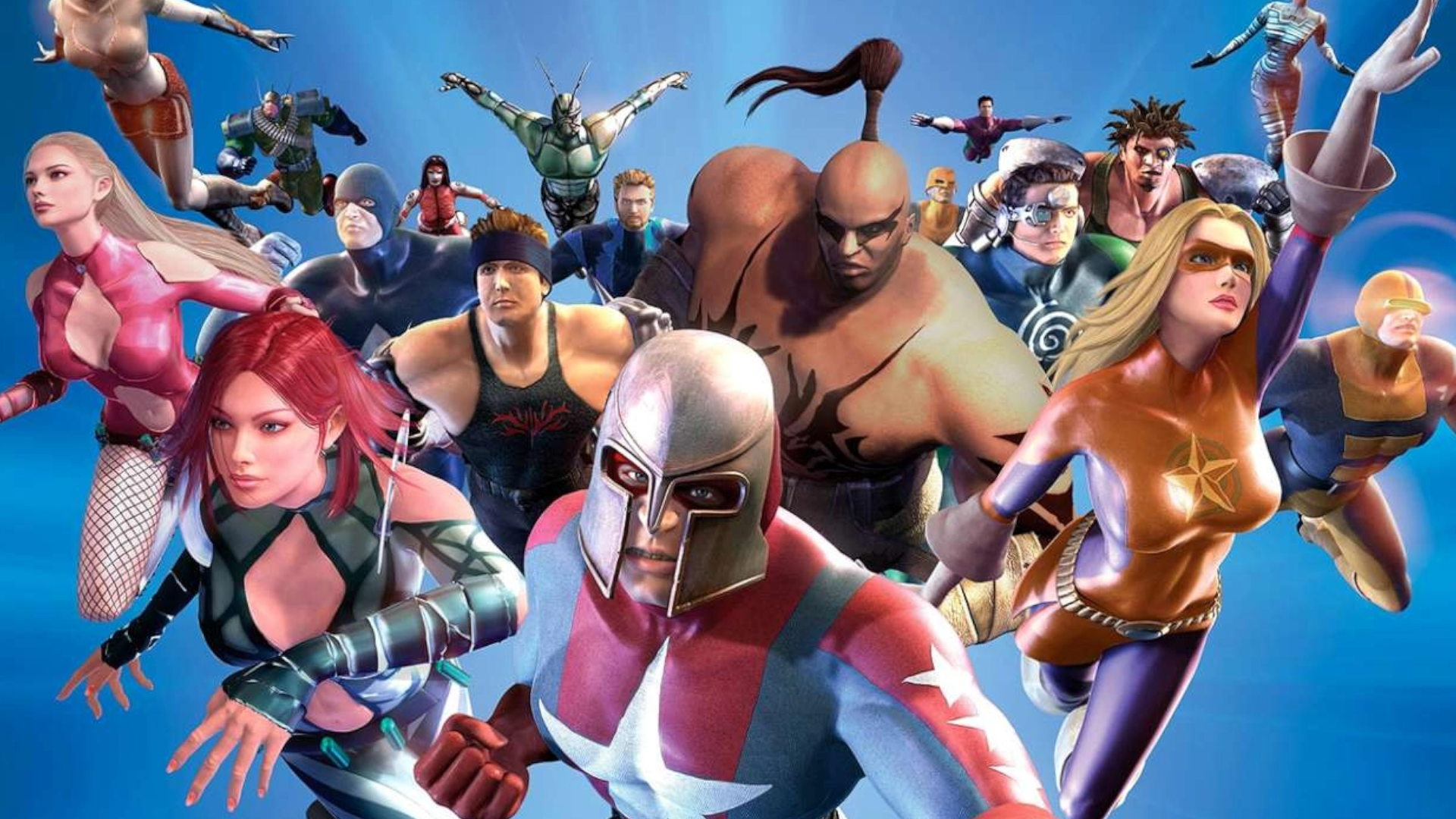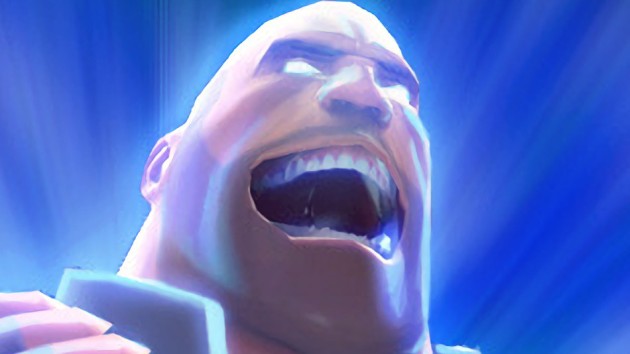
"Companies just started taking away your purchases, nobody stopped them, and it slowly got normalised."
Ross Scott—also known as Accursed Farms on YouTube—has been fighting tooth and nail for almost a full year to help spearhead game preservation. Starting after it was announced that Ubisoft’s The Crew would be shutting down, permanently ending support for the game, Scott launched the “Stop Killing Games” initiative.
As per a YouTube video (shared above) it’s been a hard-fought battle—one that may well be in its twilight years. Given the UK government’s stubborn stance on the issue, Scott’s got his (tempered) hopes on the European Citizens’ Initiative which, since its launch last August, is still shy of half a million signatures.
That makes a twofold deadline for the Stop Killing Games initiative. Or, at least, one headed up by Scott: The UK petition, which ends July 14, and the EU Citizens’ Initiative, which ends July 3.
Scott figures the latter has more of a chance of succeeding, given the current law is often at odds with itself: “The law wasn’t written for this situation, the industry’s terms might possibly be illegal, and traditional expectations are that games last indefinitely … Of course publishers can’t support games indefinitely,” Scott explains, “But by not giving expiration dates or end of life plans, that might be the situation they’ve put themselves in.”
That 1 million signatures, he argues, would’ve been an easy out that headache-having regulators would be incentivised to take: “If we had rolled up with 1 million signatures … that would’ve been the easy way out for regulators, because then they would have a mandate.”
The struggle for one million
As for why he’s still 500,000+ signatures short? It’s not because the initiative’s unpopular. “For most of the past year, the initiative has bounced back and forth between being the third and second most popular active initiative in the EU … The problem isn’t getting gamers to care about games; it’s getting people to care about anything. And frankly, that is a checkmate move.”
It’s not for lack of trying, he emphasises, going on to list a heap of meetings, conversations, outlet coverage—including ours—YouTube videos, and so on. “It feels like I’ve been running a rickshaw carrying people to the destination to break games, except it’s breaking down half way … I kept hoping after launch, somebody with more reach and better ad campaigning, could just point people to the destination and get it done.”
In fact, Scott clearly understands he’s not the ideal person for the job. “There have been many weeks on the campaign where I’ve been working 12 to 14 hours a day to keep things moving to get signatures,” he adds, before going into the complexities of finding funding.
For one, a simpler solution—buying ad space—isn’t possible on YouTube or Twitch, which forbids political advertisements in a lot of EU countries. “Good luck reaching gamers without YouTube or Twitch,” he says.
Other problems arise when considering sponsorship deals with EU channels—language barriers and contracts—as well as the general handling of money. All of which Scott is clearly hesitant to do, because he doesn’t really have the mind for it, and “taking money with no plan? That’s a grift.”
He adds that the whole situation’s been “like asking someone with severe dyslexia to write a book report on war and peace. I am the wrong person for that job.” One thing he has considered is trying to get some of the ultra heavyweight YouTubers onboard—but Scott says there are plenty of reasons they’d let things lie, such as wanting to avoid drama.
Speaking of, Scott dedicates a large portion of the video to debunking and correcting YouTuber PirateSoftware, otherwise known as Thor.
It’s a 30 minute gauntlet of interjections wherein Thor, Scott argues, gets basic facts about the initiative wrong. Such as the idea that it’s unlikely you’ll get publishers to support games forever: “Yeah. We know. That’s why we’ve never asked for that. I must’ve said this 100 times now. It was written on the website from day one. But this keeps coming up over and over again.”
I won’t go through the entire takedown, or else we’d be here all day—but it does kick off with a doozy about Thor’s MS-paint fuelled, incorrect explanation which cites the initiative’s trying to protect single-player games. “Let’s clear this up,” Scott replies. “It’s the first line on the website.” Oof.
Win/Lose
So, come July 31, has Stop Killing Games flubbed it? “Well, no. Nobody knows yet … Government moves slowly,” Scott says, referring to actions taken that are already out of its hands—in the palms of lawmakers and courts. “The initiative will be what fails, not anything else.”
Regardless, if the EU Citizen’s Initiative doesn’t go through, Scott is tapping out: “I tried my absolute damndest riding off the publicity of the Crew shutdown, and I barely got halfway. It took a chunk out of my life with almost nothing to show for it.
“No way am I going to spearhead something like this again. I saw this as my only shot, I took it to the best of my ability, that wasn’t good enough.” After July, he’s “done. In fact, I think some people might be surprised just how done I am after July … I’ve paid my dues. My income’s dropped significantly since I started doing this … I have to make up for lost time so I can pay rent.”
That’s not to say he won’t help out with other investigations—mentioning that he’s already been contacted as a de facto specialist: “I can do pilot light activity if that really helps, just no more campaigning.”
Still, he’s got some speculation to share about what’ll happen if they win. Being a realist, Scott knows it won’t be clean: “I’d like to say whatever happens because of these avenues—we didn’t write them, and never had any authority here. All we could do was report the problem.”
It felt like a coup … If we’re screwed, let’s be told that to our faces, and not have contradicting laws pretending we have rights.”
Ross Scott
As for how those avenues would impact the industry, things would definitely have to change. Seeking to pre-empt angry gamers calling for his head, he mentions: “Yes, it’s possible it could end some games on death row prematurely. Games that were designed to die could still die, but after that, all games are going to start being protected.”
I’d like to say Scott is being too pessimistic here, but seeing how certain players of a certain gacha game have reacted to striking voice actors, I’d bet good hypothetical money that he’d receive plenty of misplaced ire. On that front, Scott jokes: “Hey—remember how there were people speaking out about letting customers refund games before 2014, and they’re kinda quiet now? I do.”
And if they lose? Scott all but throws his hands up, but says the clarity’s better than nothing. “Things are going to be almost exactly like they are right now. Except then, there’ll be no pretending we have consumer rights. If you’re a gamer, it’ll be codified into law that you are consumer chattel that doesn’t deserve to keep what you buy.”
Scott says that the legal system dragging its feet is the main point of contention: “Nobody voted on this. Companies just started taking away your purchases, nobody stopped them, and it slowly got normalised. It felt like a coup … If we’re screwed, let’s be told that to our faces, and not have contradicting laws pretending we have rights.
“Either the frog hops out of the pot, or it’s dead.”
The stupidest timeline
Scott caps off the video with a bit of a rant, but given the amount of work he’s put into this whole debacle, I’d say he’s earned it.
“This is all just so stupid,” he begins. “It’s stupid that we didn’t have clear laws on this to begin with; that this practice continued for decades without clear laws on it; that it was going to continue without our intervention; that it takes so much work and so many people to even report a violation; that me, a chump YouTuber was the one spearheading this; that it was easily derailed by a bigger YouTuber convincing gamers that having their games destroyed is a good thing. It’s all so stupid.”
While Scott doesn’t think we live in the worst timeline, “If you were to say we’re on the dumbest timeline? I dunno if I could argue against that.” Me either.
In case you want to throw your support in the ring, you can visit Stop Killing Games to see what you can do before that July guillotine. If you’re in the EU, you can also sign the initiative or, if you’re in the UK, put your signature on the parliamentary petition. Personally, I hope against hope that our called shot about how 2024 was the year we all stopped putting up with this nonsense is true—even if Stop Killing Games is in danger.
Hands-on with Marathon: We played three hours
Marathon: Everything you need to know
Marathon proximity chat: Why it isn’t happening
Marathon is a story engine: Bungie hopes dying won’t feel punishing
Marathon animated short: Bungie hired an Oscar winner to make a pretty ad







